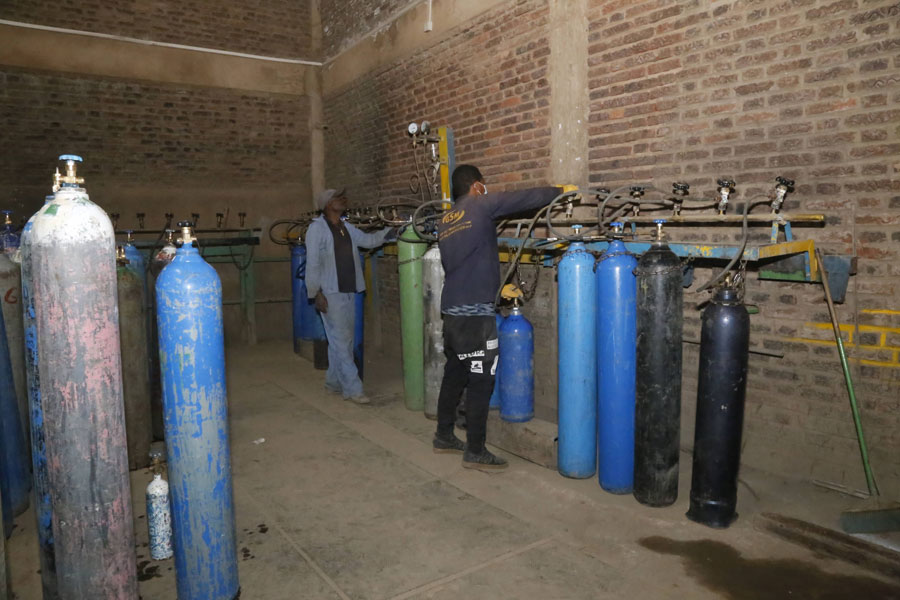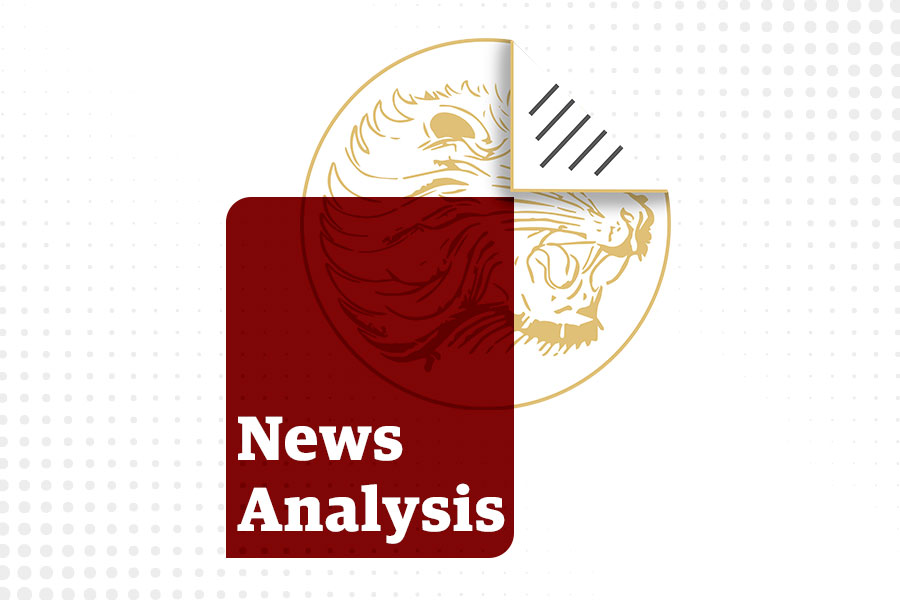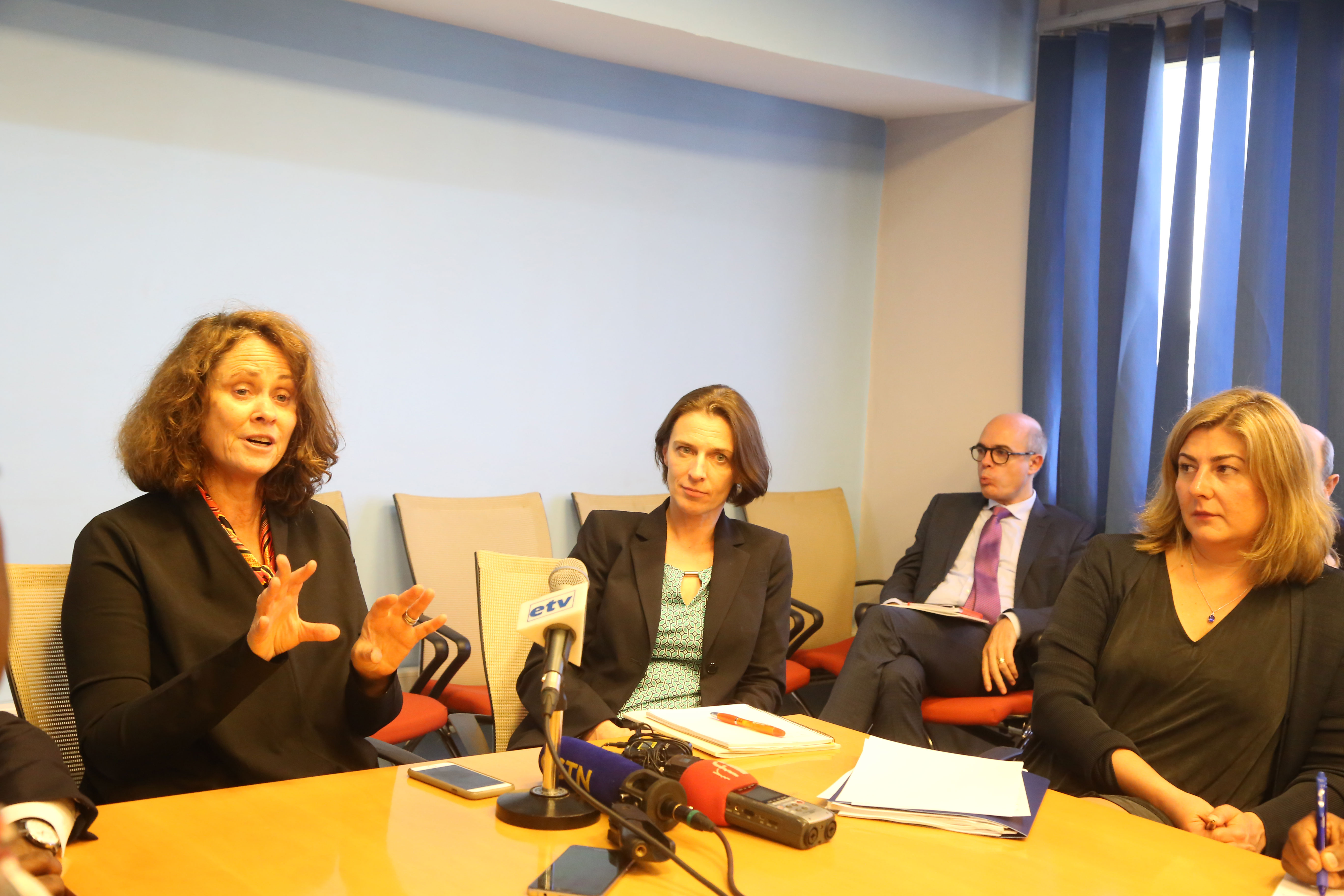
Jul 8 , 2023
By Habtamu Lemma (PhD)
I was delighted to visit the agriculture and science exhibition at the Science Museum in Addis Abeba a few weeks ago. I appreciated the government's initiative to showcase and promote some of the existing agricultural science and technology.
As Ethiopia, one of Africa's agricultural powerhouses, contemplates bolstering its agricultural and economic potential, key stakeholders have pinpointed its dairy industry as a sector ripe for transformation. By combining scientific insights and cutting-edge technologies, the country hopes to realise the promise of its livestock sector, which has grown at an annual rate of nearly six percent over the past decade.
Yet, a majority of this growth has come from the sheer increase in livestock numbers and labour, not productivity enhancement - a balance that needs redressing urgently.
Ethiopia, whose economy rests heavily on agriculture, recognises that unlocking the potential of the dairy sector could significantly enhance food security, create jobs, and increase export revenues. A considerable 80pc of the country's export revenues, along with 21pc of government revenues, stem from the export of agricultural products.
The livestock sector alone accounted for a staggering 40pc of the country's agricultural GDP and 20pc of total GDP in 2017.
Nonetheless, despite the sector's impressive contribution to the economy, it is beleaguered with challenges – the most significant being low productivity. The problem is particularly acute in dairy farming, where productivity lags behind potential yield due to inadequate access to inputs, technologies, and veterinary and extension services.
A call for a permanent agriculture and science exhibition at Addis Abeba's Science Museum should gain traction. Such an initiative could inspire and educate future generations about food production processes and ignite a passion for agriculture, potentially leading them to a career in this critical sector.
In focusing on dairy farming, a multi-pronged strategy is required. The country has a unique advantage due to its large population of milking cows, favourable agro-ecology, (the temperate type of highland and mid-altitude), potential for high-quality feed production, and a growing demand for milk in urban areas.
However, these potentials are hindered by issues such as scarcity of livestock feed and weak institutional support, which prevents the industry from transitioning into commercial operations.
Interestingly, these setbacks are unfolding in the midst of a national tree-planting campaign, a commendable environmental conservation endeavour. Yet, this campaign might inadvertently exacerbate the feed scarcity issue as most of the plantations are taking place on pastureland. What is needed is a considered approach to tree planting that favours degraded lands and integrates fodder trees into plantations.
Investments in better genetics, feed, and health services could prove pivotal in boosting milk production. Strategies include introducing cross-bred cows, improved feeding and management techniques, and leveraging technologies to aid productivity. However, this requires significant backing from federal agencies such as the Ministry of Agriculture, its livestock directorate, the Livestock Development Institute and manufacturing industries as well as a robust livestock master plan, which currently seems to be lacking implementation.
The country needs a clear policy framework to stimulate productivity growth through better livestock extension and service delivery systems, better access to input and output markets for livestock producers, and improved education and awareness for farmers. Technology dissemination is an urgent priority, as are finance and durable working areas or land for market-oriented farmers, agribusinesses, and self-employed graduates.
The success of the dairy industry – and the wider agriculture sector – depends on Ethiopia's ability to incorporate scientific knowledge, innovation, and emerging technologies into traditional farming practices. Its future food and livelihood security hinges on farmers' ability to increase productivity, for which they need access to advanced inputs, knowledge, and training.
PUBLISHED ON
Jul 08,2023 [ VOL
24 , NO
1210]


Agenda | May 15,2021

Commentaries | Sep 10,2021

News Analysis | Jan 01,2022

Radar | Jul 13,2019

Radar | Aug 26,2023

Editorial | Apr 22,2023

Radar | Oct 03,2020

Fortune News | Nov 21,2018

Editorial | Jan 27,2024

Commentaries | Jun 22,2019

My Opinion | 131659 Views | Aug 14,2021

My Opinion | 128023 Views | Aug 21,2021

My Opinion | 125986 Views | Sep 10,2021

My Opinion | 123610 Views | Aug 07,2021

Dec 22 , 2024 . By TIZITA SHEWAFERAW
Charged with transforming colossal state-owned enterprises into modern and competitiv...

Aug 18 , 2024 . By AKSAH ITALO
Although predictable Yonas Zerihun's job in the ride-hailing service is not immune to...

Jul 28 , 2024 . By TIZITA SHEWAFERAW
Unhabitual, perhaps too many, Samuel Gebreyohannes, 38, used to occasionally enjoy a couple of beers at breakfast. However, he recently swit...

Jul 13 , 2024 . By AKSAH ITALO
Investors who rely on tractors, trucks, and field vehicles for commuting, transporting commodities, and f...

Jun 28 , 2025
Meseret Damtie, the assertive auditor general, has never been shy about naming names...

Jun 21 , 2025
A well-worn adage says, “Budget is not destiny, but it is direction.” Examining t...

Jun 14 , 2025
Yet again, the Horn of Africa is bracing for trouble. A region already frayed by wars...

Jun 7 , 2025
Few promises shine brighter in Addis Abeba than the pledge of a roof for every family...

Jun 29 , 2025
Addis Abeba's first rains have coincided with a sweeping rise in private school tuition, prompting the city's education...

Jun 29 , 2025 . By BEZAWIT HULUAGER
Central Bank Governor Mamo Mihretu claimed a bold reconfiguration of monetary policy...

Jun 29 , 2025 . By BEZAWIT HULUAGER
The federal government is betting on a sweeping overhaul of the driver licensing regi...

Jun 29 , 2025 . By NAHOM AYELE
Gadaa Bank has listed 1.2 million shares on the Ethiopian Securities Exchange (ESX),...